Are movies actually getting longer?
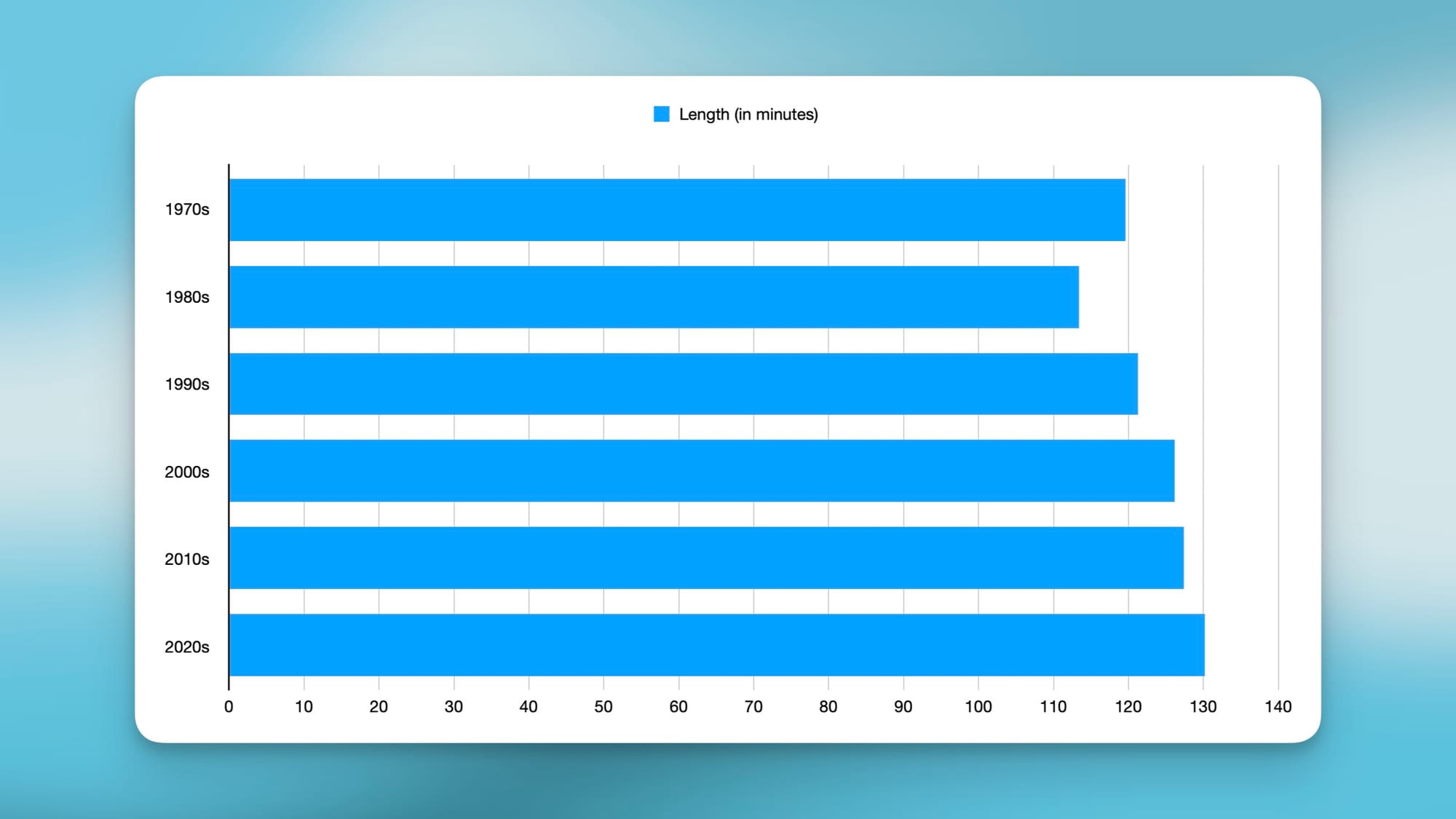
Are movies getting longer than they used to be? It’s something I think a lot of us feel is true, but is it? I wanted to get a feel for this, so I collected some data, looked at the trends, and made some proposals based on that info.
The Data
I used Letterboxd to get the 50 top movies from every decade from the 1970s through the 2020s. This isn’t the only way to pull data, and I could also maybe have looked at the top box office numbers, but I chose Letterboxd popularity because I think that’s a pretty decent barometer for the significance of films over time. It’s not all about box office numbers, but it’s also not just what’s the most hip indie films. While imperfect, I think you could look at the top 10 movies on Letterboxd each year and go, “yeah, those are a good set of the top movies in the culture this year. I know this is imperfect, and I’ll note that in the “interesting notes” section below.
I took these top 50 films of each decade, recorded their runtimes in a spreadsheet; simple as that.
Findings
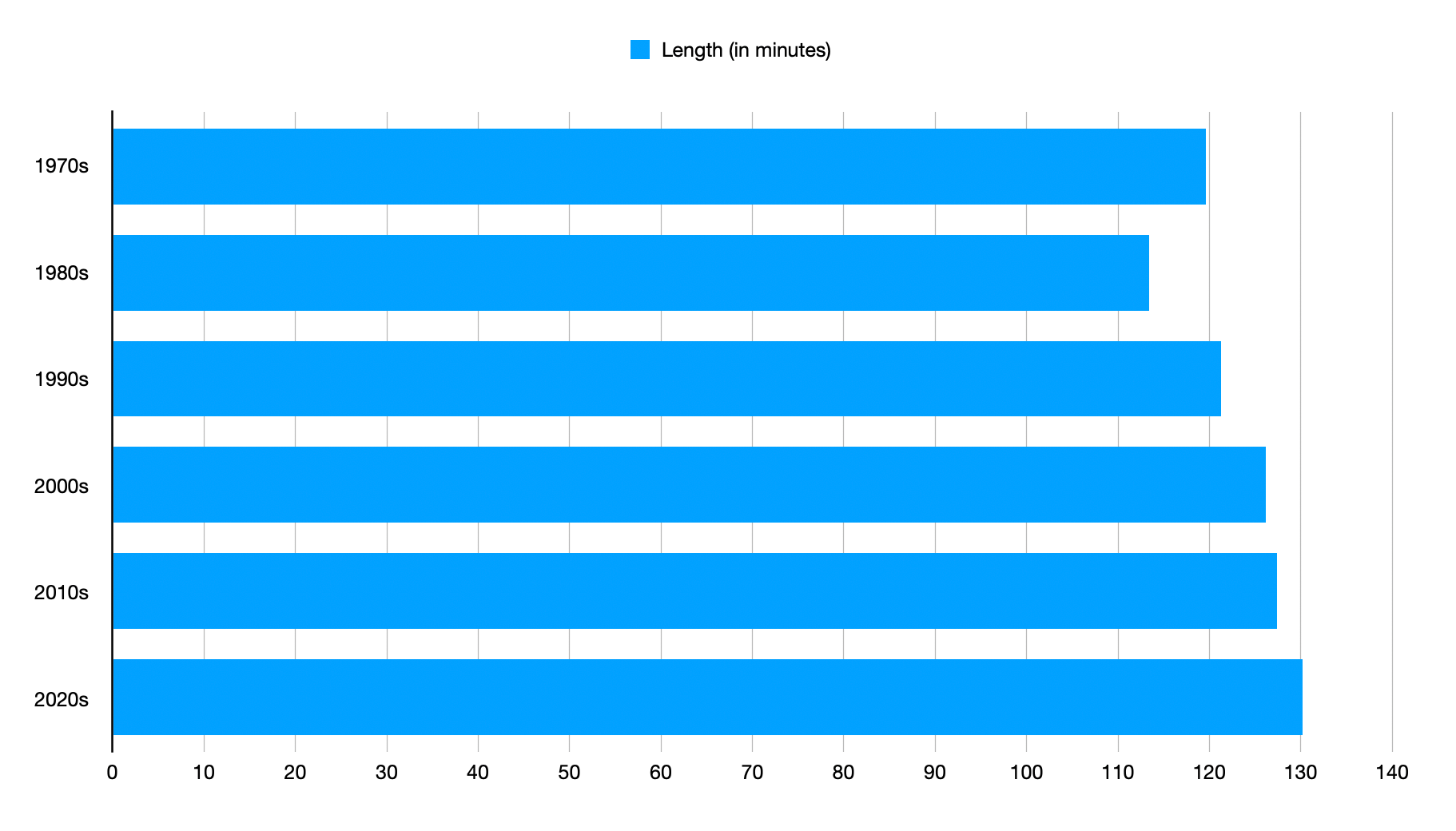
I found movies in the 1980s had the shortest average runtime of just 1 hour and 53 minutes, and the 2020s have had the longest average, a full 17 minutes (15%) longer.
Now, the 1980s were a significant drop from the 70s, so if you start the count in the 70s, the change has only been 10 minutes (8%) over 5 decades.
And here’s the median length over the same period, which reduces the impact of outliers, but tells a similar story.
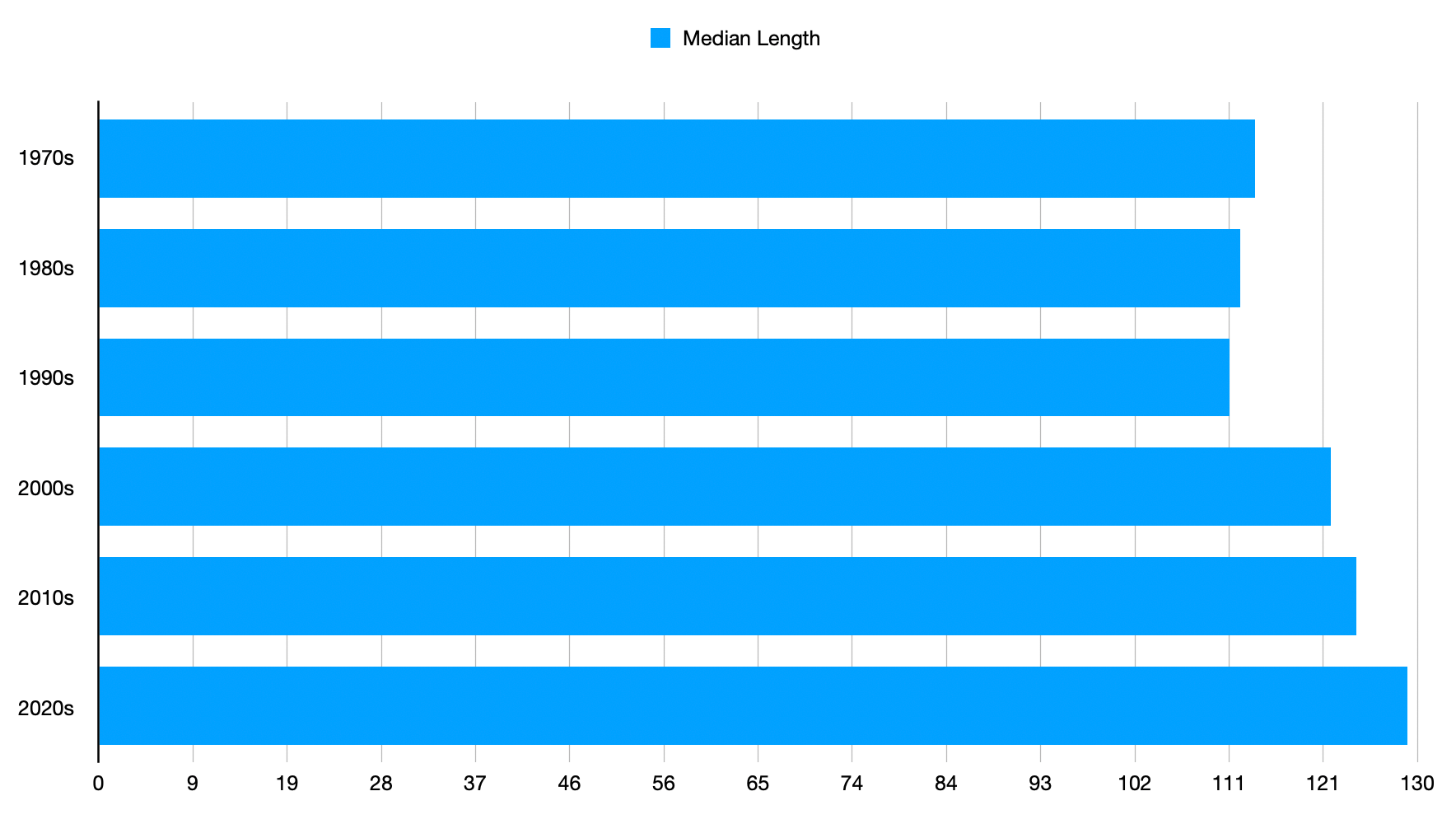
No matter how you cut the data though, this data shows movies have indeed gotten longer.
Interesting notes
While this isn’t looking at everything ever released, and the data is skewed by the sort of person who uses Letterboxd, I still thought there were some interesting notes to be found in here.
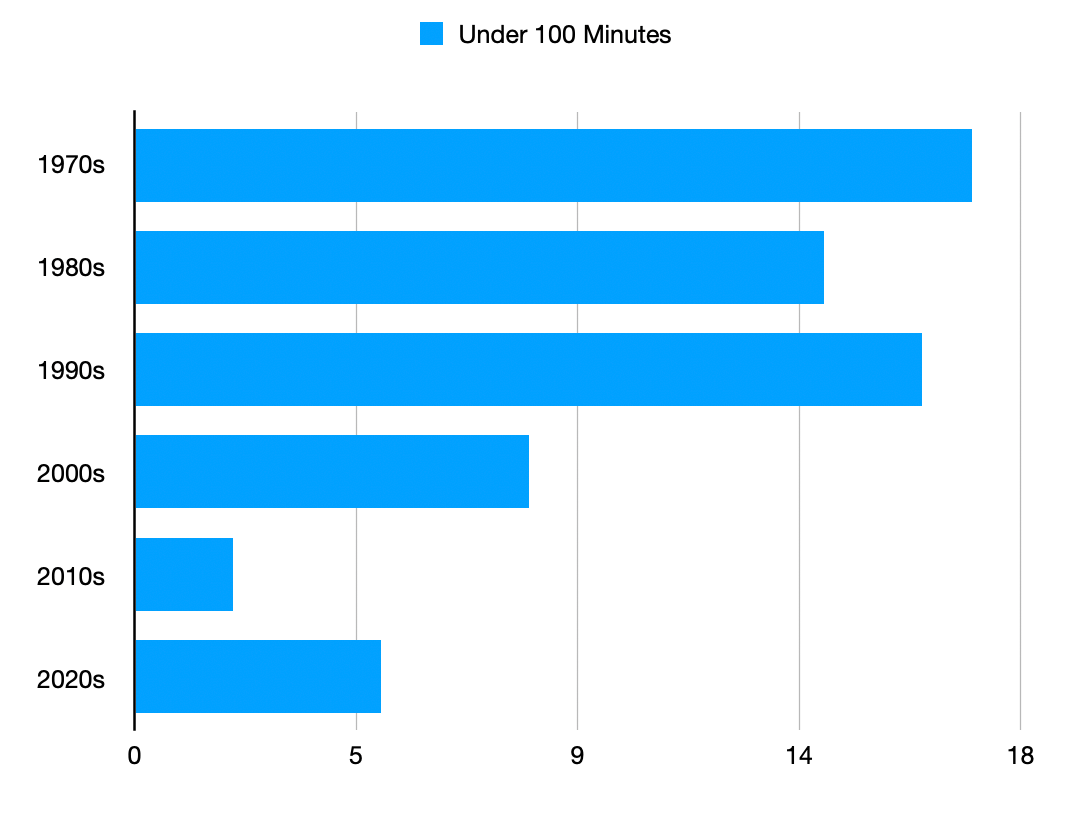
While the averages have only ticked up slightly, the number of short movies has definitely gone down. We went from 34% of top films being under 100 minutes in the 70s down to as little as 4% of them in the 2010s.
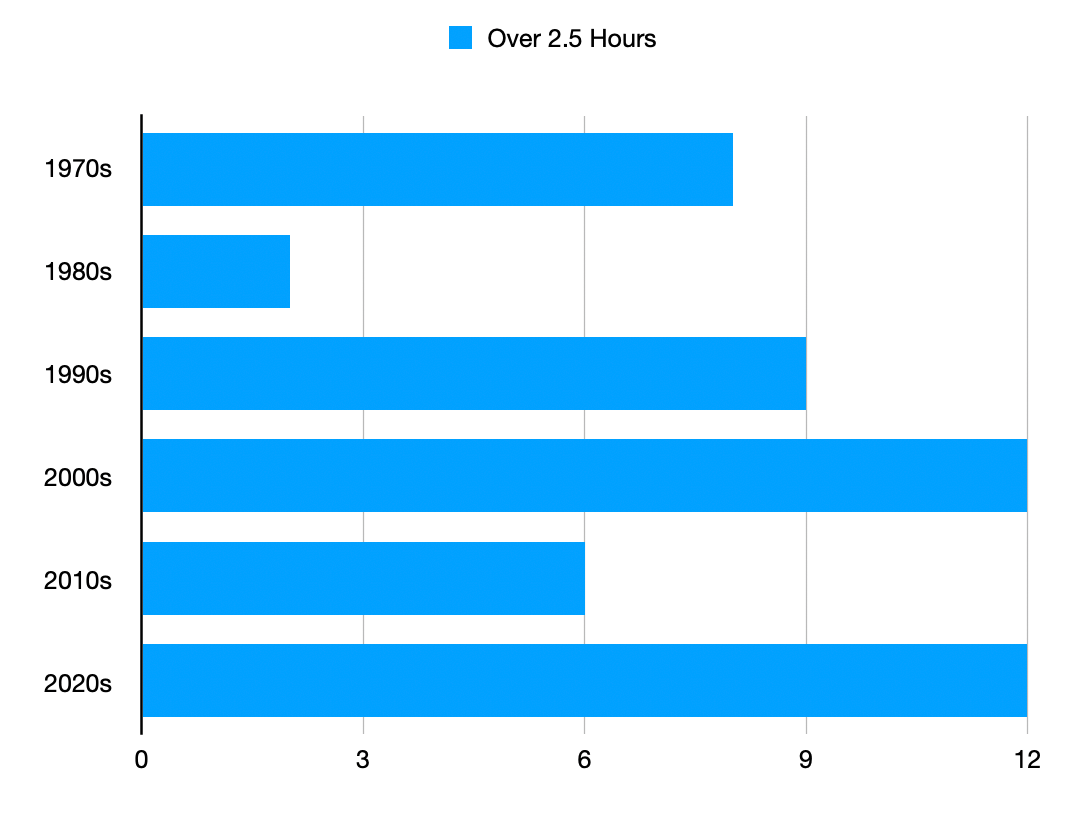
On the other end of the spectrum, the number of films over 2.5 hours, which I think is a decent point where most people would consider something “a long movie,” has been more erratic. The trend is certainly increasing, but it’s not moving a ton.
But how about movies over 2 hours in general?
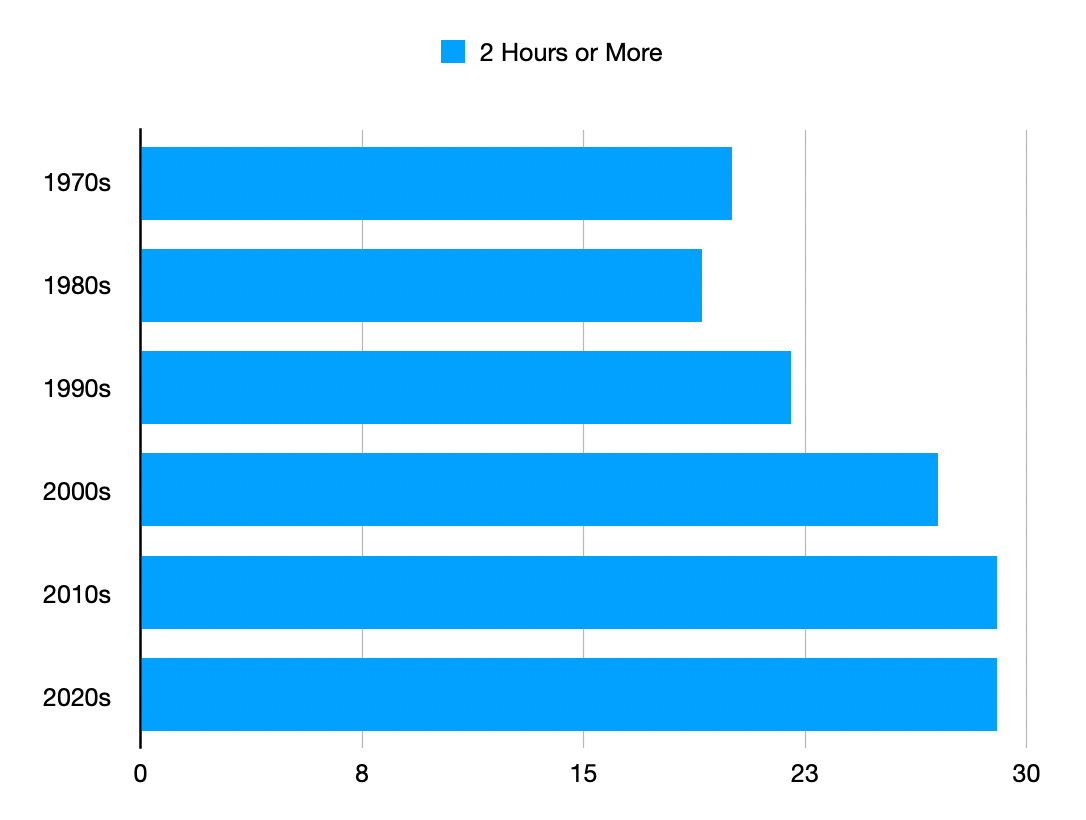
This is where things came into some clarity for me. While the extremely long movies have gone up, but erratically, the number of films over the 2 hour mark have consistently increased, to the point nearly 2/3 movies in the data in each of the last two decades are 2 hours or more.
I think this might be a contributor to this feeling of movies getting longer. On average, a movie only takes up about 10 minutes more of our day than in the 90s, but we run into fewer movies that are under 2 hours; everything seems to be a little over 2 hours. Maybe we just feel like we’re less often surprised by a nice, short film in our queue.
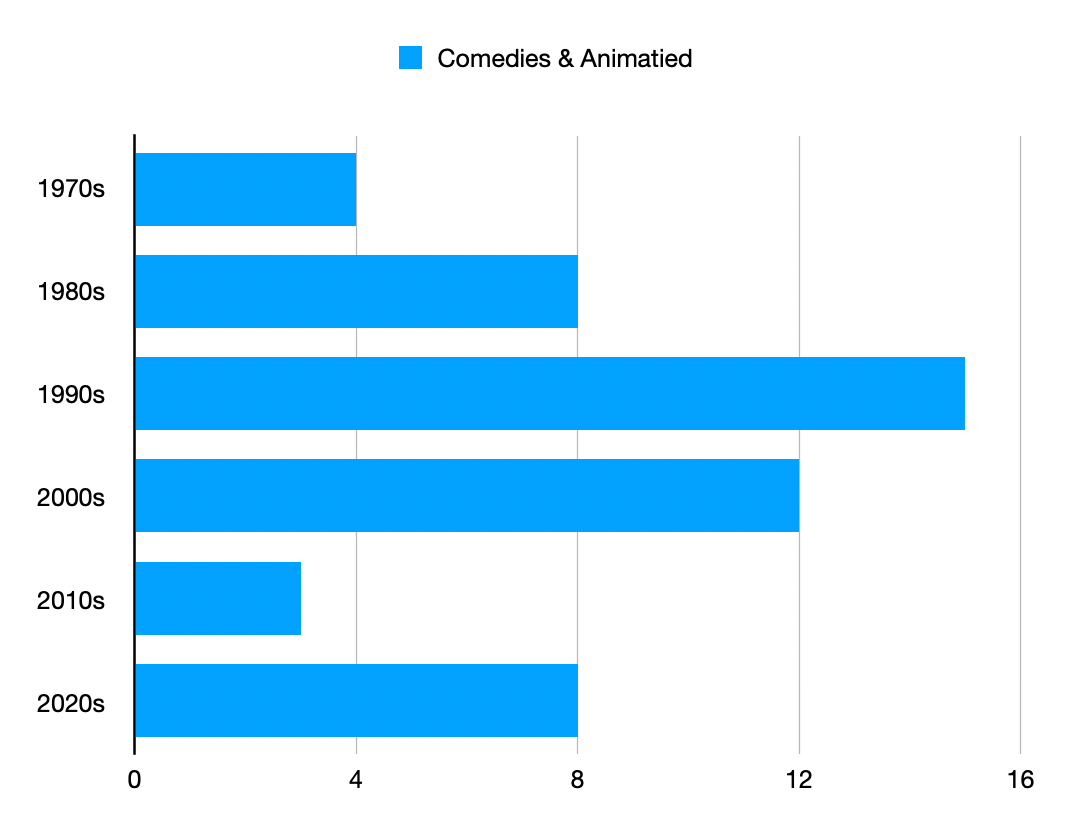
Scanning through the top 50 each decade, I wondered if the number of comedies and animated films was contributing to the drop, since those tend to be shorter. I found this inconclusive, as the variance was not related to the overall trend in total length. It’s hard to tell from this data if this has to do with the average age of Letterboxd users more interested in animated films and comedies from when they were kids, or if those genres are actually less prominent today.
Minor detail: Killers of the Flower Moon’s 3 hour 26 minute runtime is the longest film in the data. It’s awesome.
Another thought that came up when recording the data was whether revenue methods made a difference here. With movies making their money basically in theaters only in the 70s and 80s, shorter runtimes were beneficial since that allowed more showtimes each day in theaters. Meanwhile, home video became a big deal in the 90s and 2000s, so longer, more prestigious films could become more profitable, and now in the 2020s, streaming means longer films could equate to more watch time, which is what streamers care most about. We’ve seen this in music, where some of the most successful artists release longer albums because that means more streaming time, which means more revenue for them. All that said, I think the trends are too long term to attribute any meaningful difference to streaming just yet, but it will be something to keep an eye on going into the future.
I also wonder if the rise of prestige TV has had an impact here. I know numerous people who prefer TV over film because it lets them spend more time with characters and experience more plot points. Perhaps studios are following consumer demand for more story.
Maybe there’s something with new movies from franchises we know being longer. The latest Star Wars trilogy was 18 minutes longer per film than the original trilogy. Indiana Jones and the Dial of Destiny is the longest in the franchise by a good amount, and is a full half hour longer than Raiders of the Lost Ark.
A year ago I looked into how many sequels were coming out, and that count is on the rise as well. Given sequels generally feel they need to be bigger than what came before, it makes sense that as more movies are sequels that want to be bigger and better, that average run times would rise in parallel.
Takeaway
This dataset clearly shows movies are getting a bit longer over time. The difference isn’t massive, but it’s happening. The reason for this change is still not clear to me though, and I think like many things, you need to consider a combination of reasons to get to the overall trend. I think likely contributors are the types of movies that are culturally significant (superhero movies replacing comedies and dramas) and evolving business models play the biggest roles, but there could be more at play here. I would also be interested if I have more time in the future to look at the top movies on IMDB and Box Office Mojo to see if similar trends appear there, but that’s for another day.
Discussion